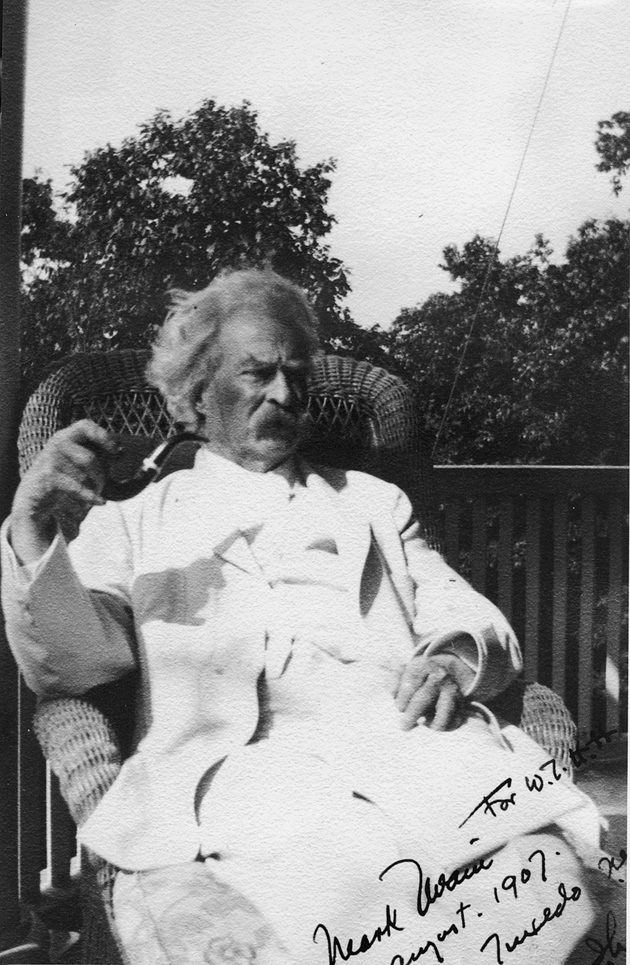In the latest episode of the podcast, Andrew Delbanco talks with Andrew Martin about the first volume of Mark Twain’s unabridged Autobiography and the distinctive joys and challenges of reading Twain in the twenty-first century.
Andrew Martin: It seems like the public perception of Twain remains the guy on the porch, this sort of genteel Southern nostalgia.
Andrew Delbanco: That’s a part of him, but to the extent that he puts it out there as his public face, it’s a construction. He was immensely sophisticated about a lot of things, with the possible exception of investment practices, which he wasn’t so good at. I think you can make the case that he was fundamentally a travel writer. I mean, he was children’s writer, he was a young-adult storyteller, he was a social critic, he was a lot of things. But his mode was really just to watch the world go by, and he was a relentless, compulsive traveler. Even if he was living in the same town, he would move constantly: he had multiple addresses in Washington, multiple addresses in New York, and so on and so forth. And then he took many long and arduous trips to Europe and around the world, often under financial pressure to make money by speech-making and by writing travel articles. It’s really in his travel writing that you find him at his most alert.
Listen to the whole conversation below, or subscribe to the podcast with iTunes or your RSS reader to download this and other episodes.
(Podcast produced by Sean Hagerty)



